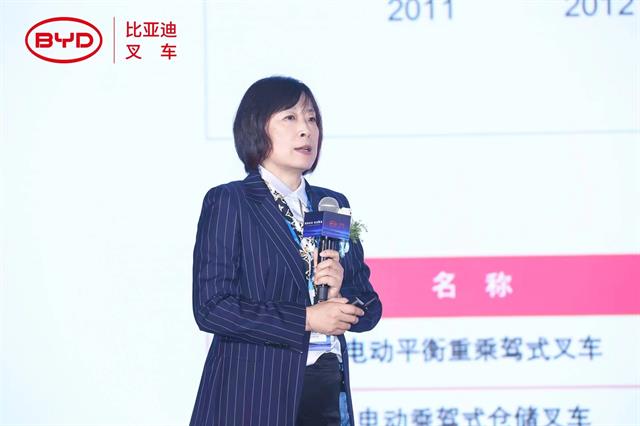 Zhang Jie
Zhang JieFor the first time in recent history, equipment sales fell in China last year.
According to Zhang Jie, secretary-general of the Industrial Truck Institution of China Construction Machinery Association (CCMA), a total of 1,047,967 units of motorised industrial vehicles was sold in 2022, a decrease of 4.68% from the same period in 2021.
Domestic sales of 686,426 units were recorded in 2022 - down 12.4% from 2021.
Jie says exports continued their growth momentum of the previous two years, while the domestic market was in “a period of adjustment, with a large decline, and a negative growth of more than 10%, which was rare in the past 10 years”.
CCMA attributes the falls to an “industry adjustment cycle” as well as the impact of the epidemic on the economy.
“Since the outbreak of the epidemic in 2020, exports have maintained a relatively high sales volume, especially in 2021, when they reached a rare positive growth of 73.83%, which has never been seen in 10 years,” Jie explains.
Jie predicts that the export situation in 2023 will be “severely tested”.
While sales of internal combustion forklifts have experienced a large decline, CCMA notes growth in electric pedestrian forklifts, electric counterbalance forklifts and especially lithium battery electric counterbalance forklifts.
In 2022, the total sales volume of lithium battery forklifts (Class I-III) rose 30.29% to 433,410 units. This included 77,452 electric counterweight ride-on forklifts, 3,898 electric ride-on storage vehicles and 352,060 electric pedestrian storage vehicles.
Jie is flagging better overall performance from 2023 to 2025 as China enters “a new round of growth”.
“However, it will take time for the market to recover, and the purchasing power of corporate users will also change, depending on the degree of economic activity,” Jie cautions.